In-depth comparison of Lovable.dev and Bolt.new
Table of Contents
I extensively use AI tools for coding - primarily Claude Sonnet 3.5 in VS Code Copilot and the OpenAI ChatGPT macOS app (using the 01 and 40 models) as of December 2024. While these tools, which felt groundbreaking just months ago, have become an integral part of my daily workflow, I see significant room for improvement in AI code tools, particularly in UX and approach.
Despite progress, I still spend a lot of time copying and pasting between tools. While VS Code Copilot’s code edits and AI autocomplete help bridge the gap between VS Code with Copilot and tools like Cursor.sh, they’re far from seamless. I also continue to spend time setting up my development environment, configuring databases, managing DNS entries in the Cloudflare control panel, and setting up Nginx virtual hosts.
That's why I am so excited to see lovable.dev and bolt.new launched in 2024.
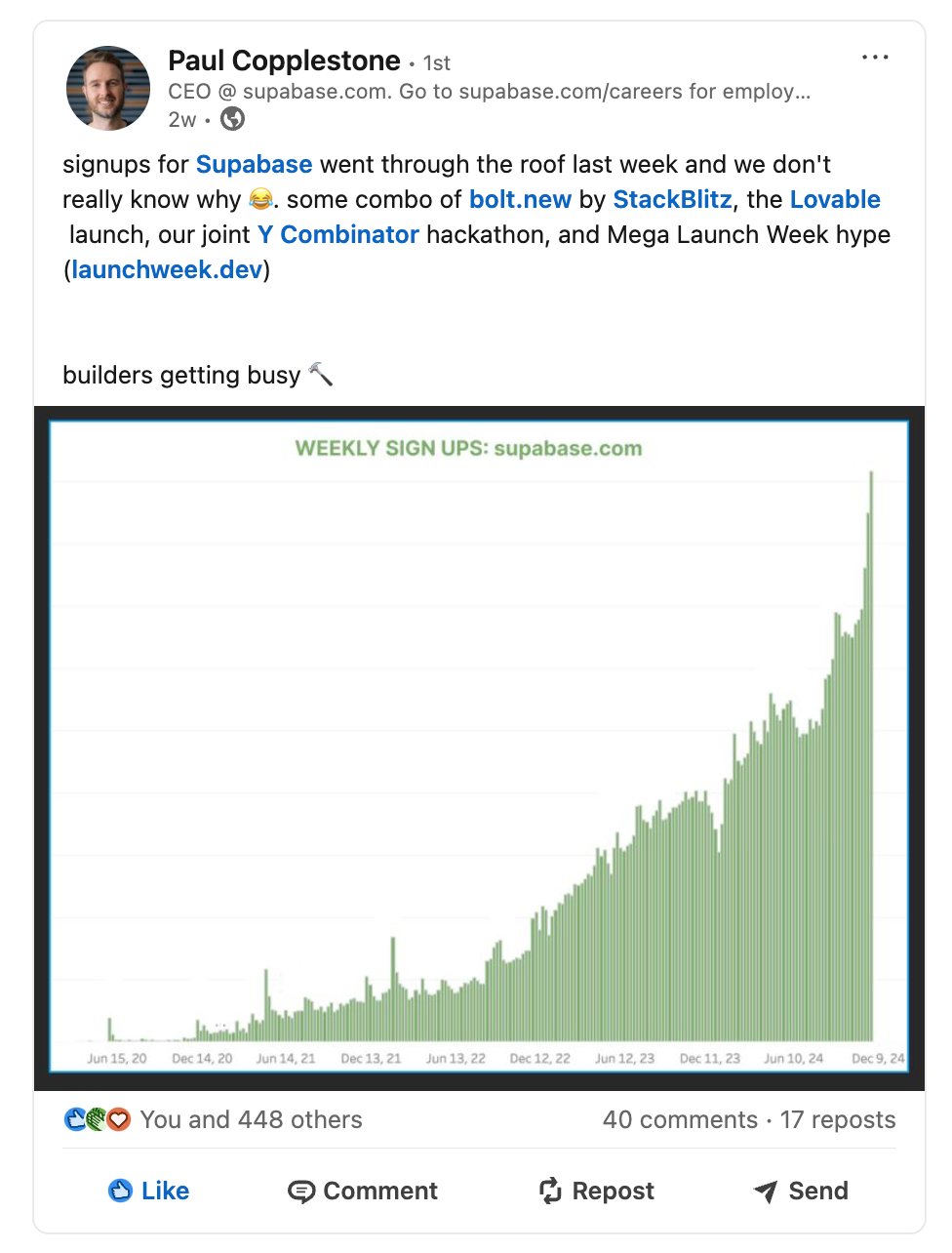
Lovable.dev and Bolt.new represent a new wave of AI products for developers. The major difference compared to the "old-school" approach (can we call the ChatGPT app old-school now?) of code generation via ChatGPT or Copilot is that they:
- Allow a very quick start and smooth development progress directly from a web browser.
- Mitigate the pain of website deployment.
- Provide a real sandbox for code execution.
- Include a ready-to-use, opinionated database solution.
With these features, LLM models can finally execute code in a controlled environment, interact with databases, and potentially free us from manual database design and endless copy-pasting of code.
Lovable.dev
Lovable.dev is a SaaS built by authors of open-source project https://github.com/gpt-engineer-org/gpt-engineer (50k+ of stars!)
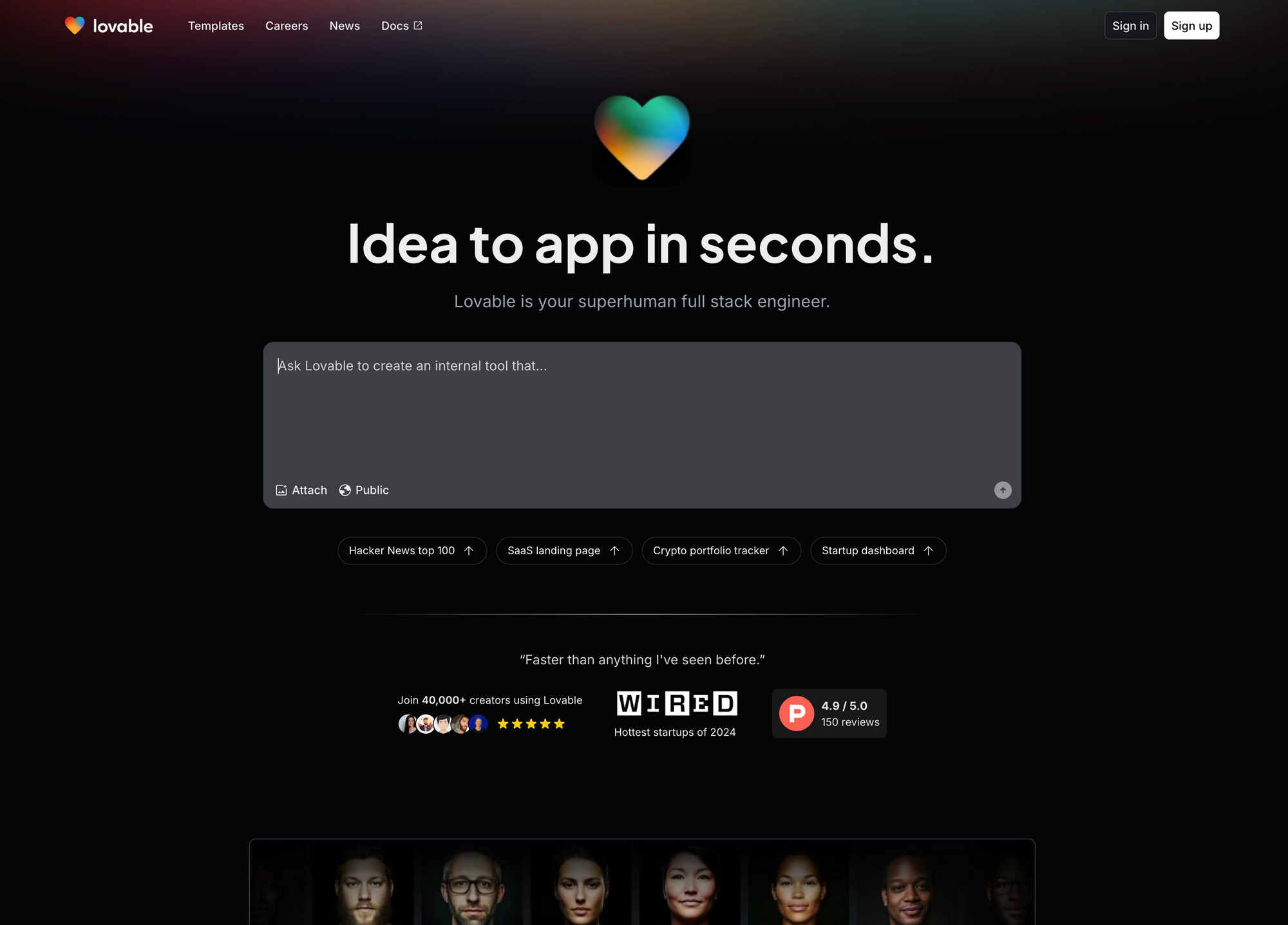
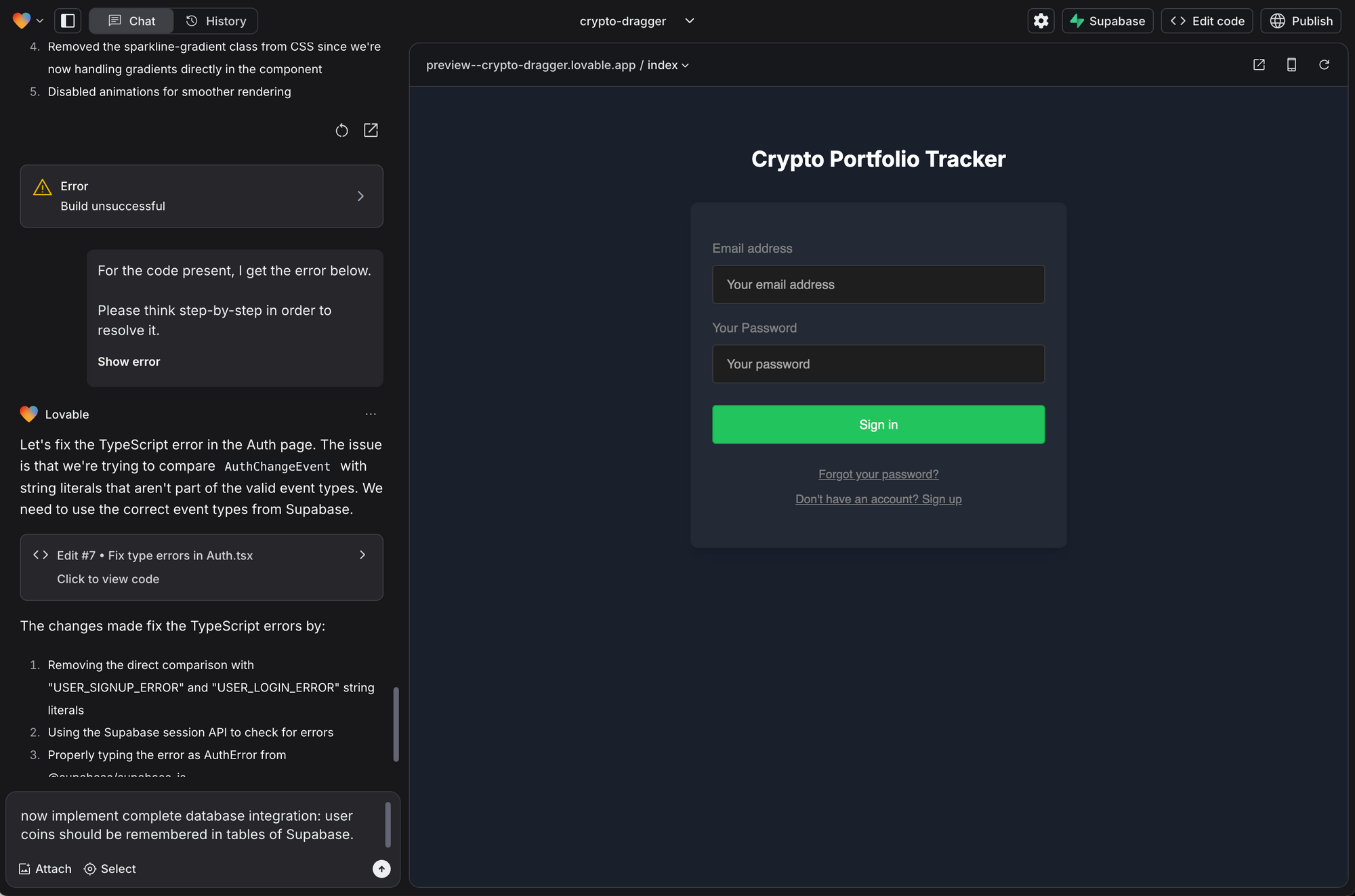
Here is the Lovable.dev CEO and founder:
Looking at the GPT Engineer repo commits, it is obvious that the open source development of the project was active during 2023 and effectively stoppped approximately by the summer of 2024.
Reading GPTengineer code is recommended if you want to understand better how open-source AI code generation and execution works (but, if you hope to find some interesting code sandboxing techniques which could be later re-used under the hood of Lovable, you will be disappointed - there is no any sandboxing here to be seen). Aider is another open-source tool which is actively maintained and allows to leverage AI for coding - I recommend to explore it as well (and read their awesome blog where they analyze and benchmark how recent LLM models write real-world code).
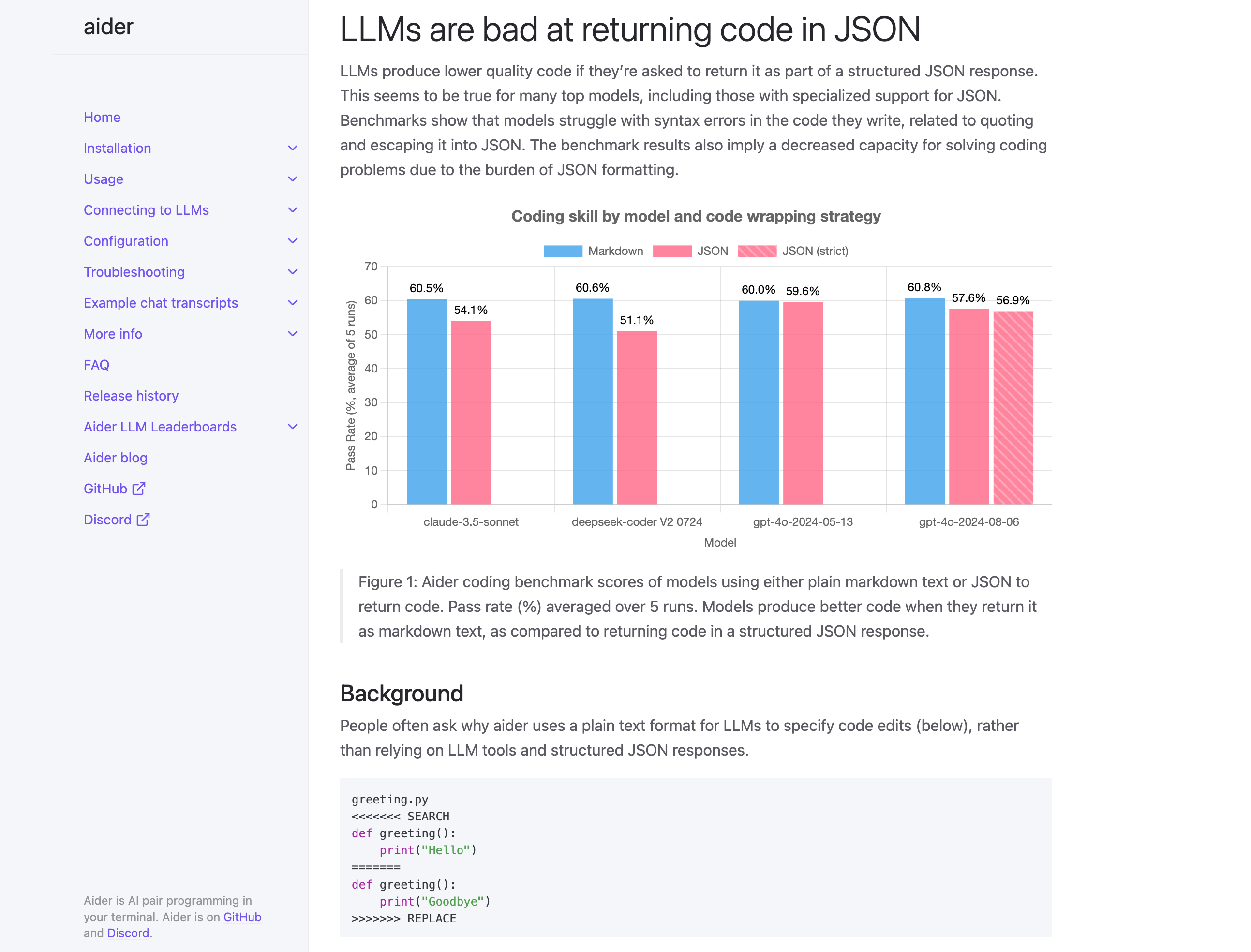
Ok, lets get back to Lovable!
Pricing
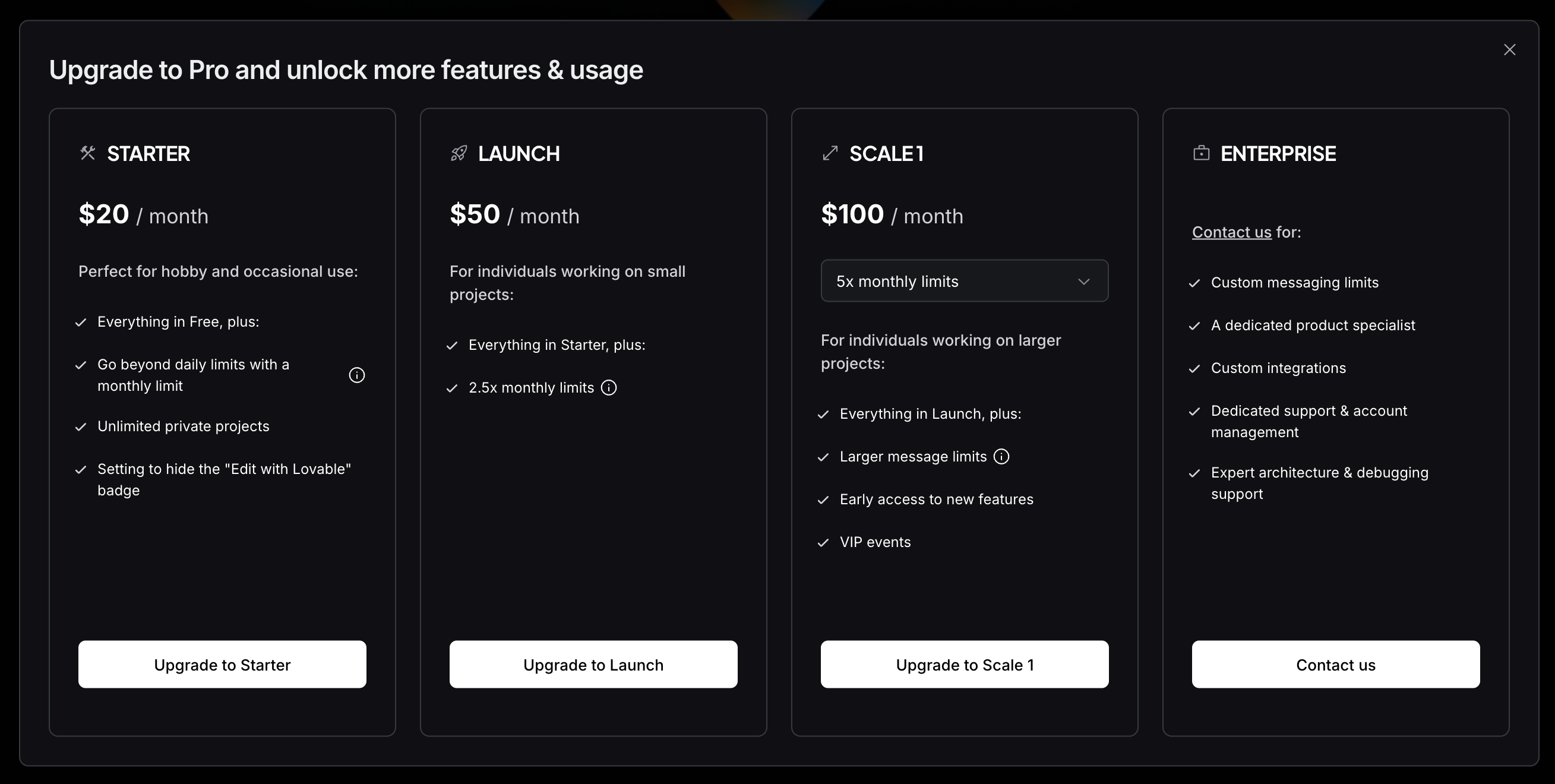
Paid plans start at 20 USD / mo.
Free plan is very restrictive - it only has 5 messages allowed per day. I exhausted my limit without building anything resembling a production project.
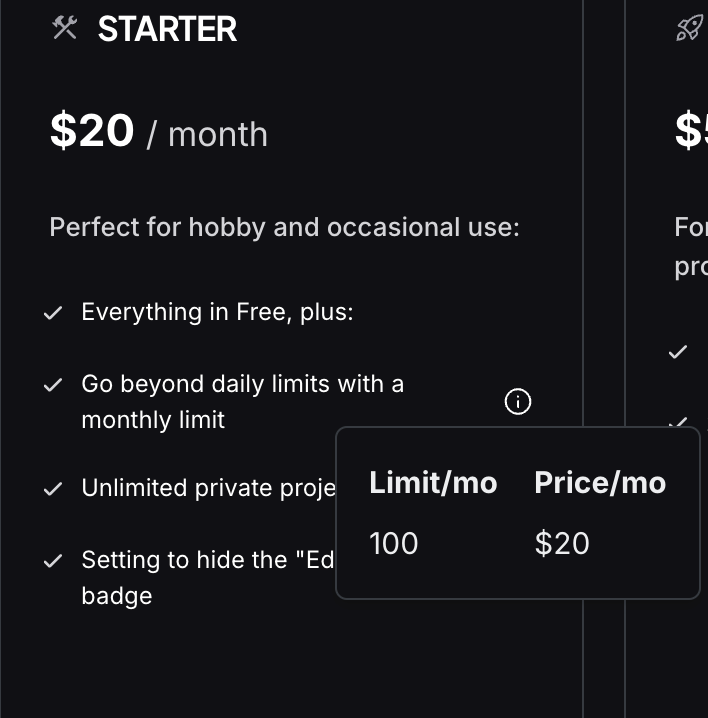
Starter plan for 20 USD is also pretty restrictive: 100 edits per month. But this should be enough to build something meaningful, especially if you are careful about your prompting!
Code execution: Fly.io
Lovable needs to execute the code which was generated by the AI, to build the preview of the project. Obviously, this code is untrusted and requires some isolated environment to be run in. I have some previous posts on Javascript sandboxing because I had a very similar task of untrusted code isolation while building my ScrapeNinja Web Scraping API where I allow customers to write some JS code for HTML extractors which are executed on ScrapeNinja servers.
Since GPTEngineer github repo does not provide any information regarding sandboxing of the generated code, we have to dig deeper into Chrome Dev Tools and Lovable network requests.
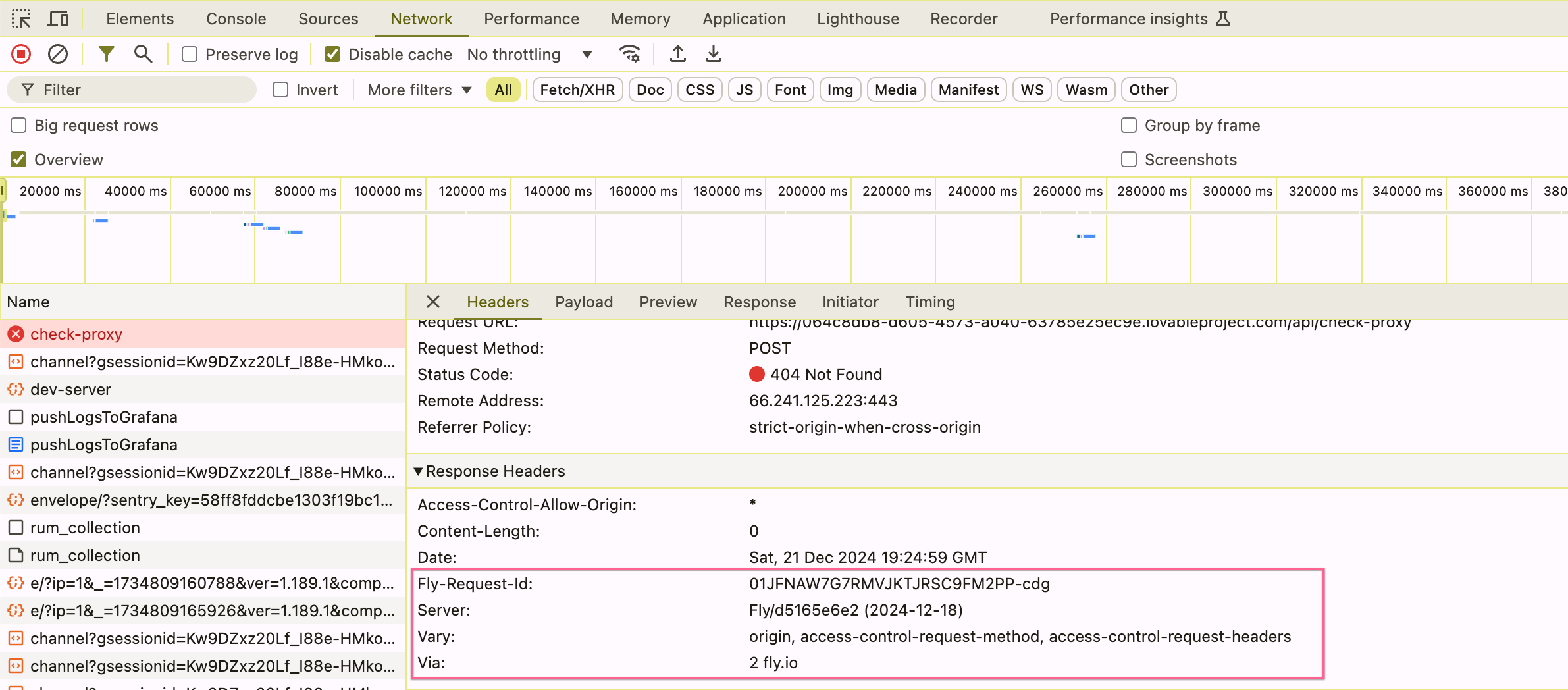
Okay, this was easy: the response headers of Lovable show us that they use Fly.io containers under the hood. And Fly.io leverages Firecracker MicroVMs technology, read more in their awesome architecture post.
Database
Lovable has freshly built-in Supabase connector. It provides a convenient way to tie your Lovable project to Supabase (which is a self-hostable PostgreSQL-powered Firebase alternative). There is no obvious way to attach self-hosted Supabase to Lovable, only cloud version is easy to connect. This means that Supabase pricing also applies to you now.
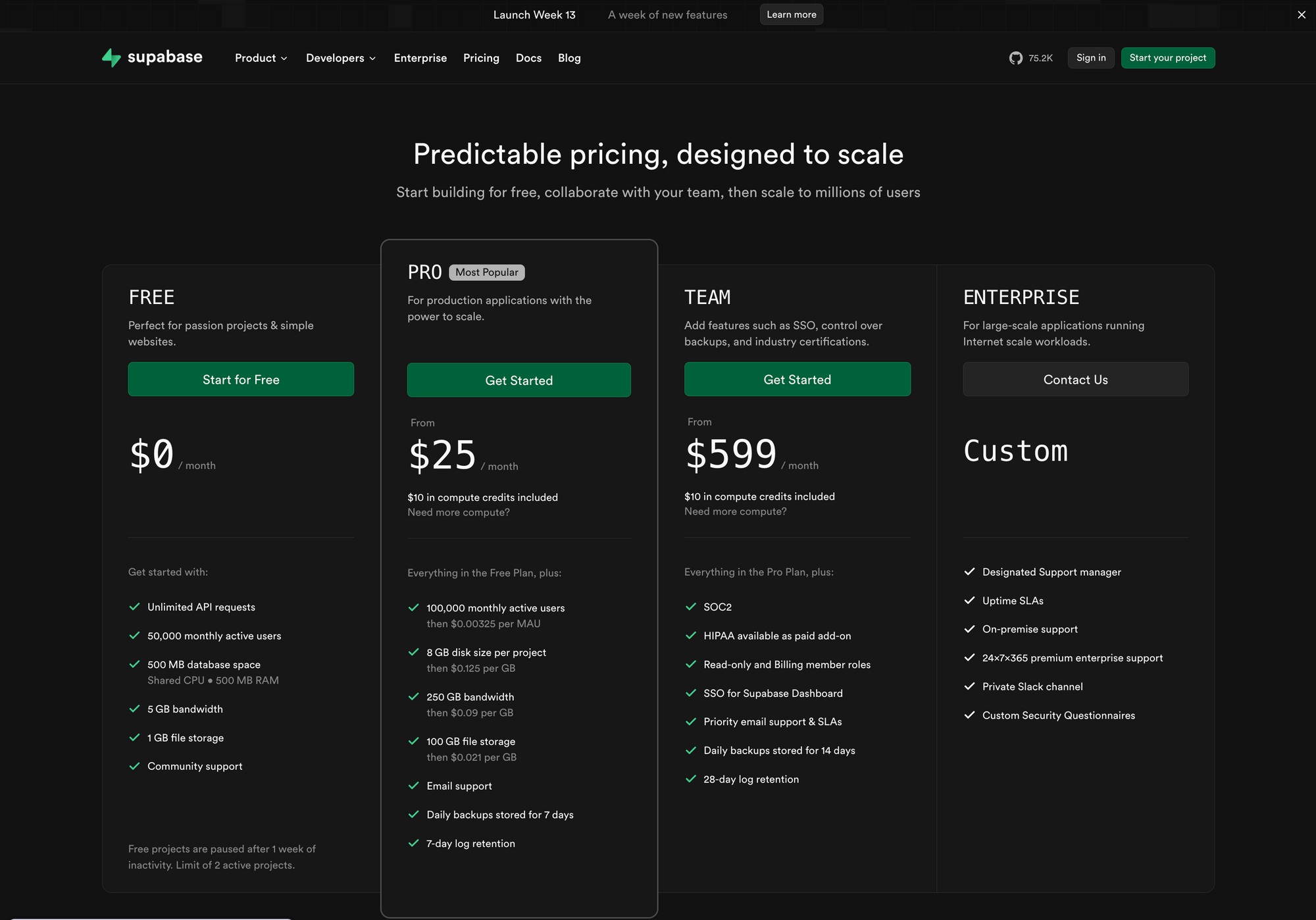
Supabase is seriously awesome – but it can become expensive if you suddenly realize you need to scale it.
I enjoyed how I asked "please add user auth" and it was added by Lovable using modern Supabase React SDK. I hate adding auth and it could easily take me a couple of hours. With Lovable it takes just 1 minute!
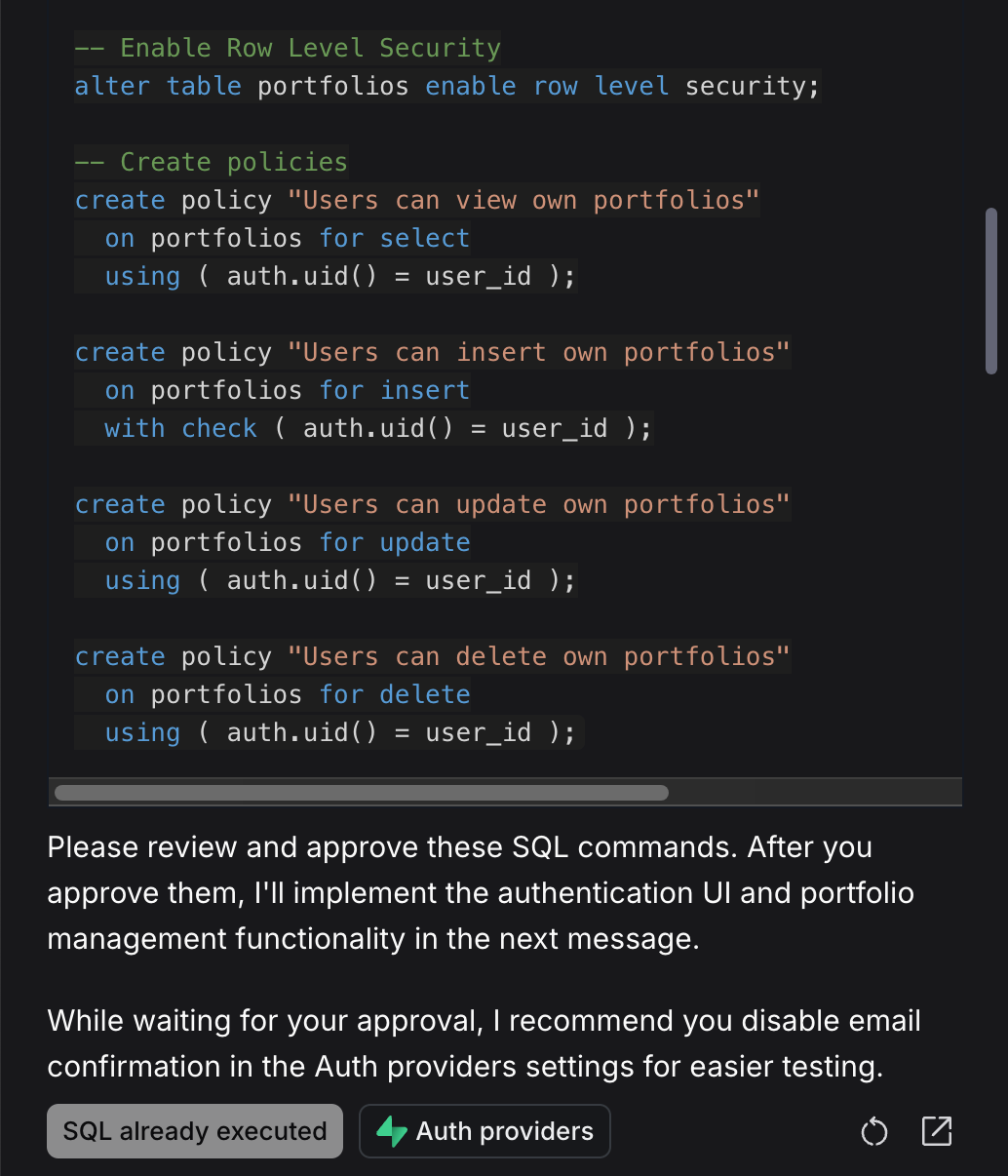
Code editing: NONE
Supabase does not have code editing built in. I mean, you can ask AI to change your code, but there is no way to really edit the files by yourself at the moment when you chat with AI. The only way to edit is to publish the project into Github and launch in-browser github.dev.
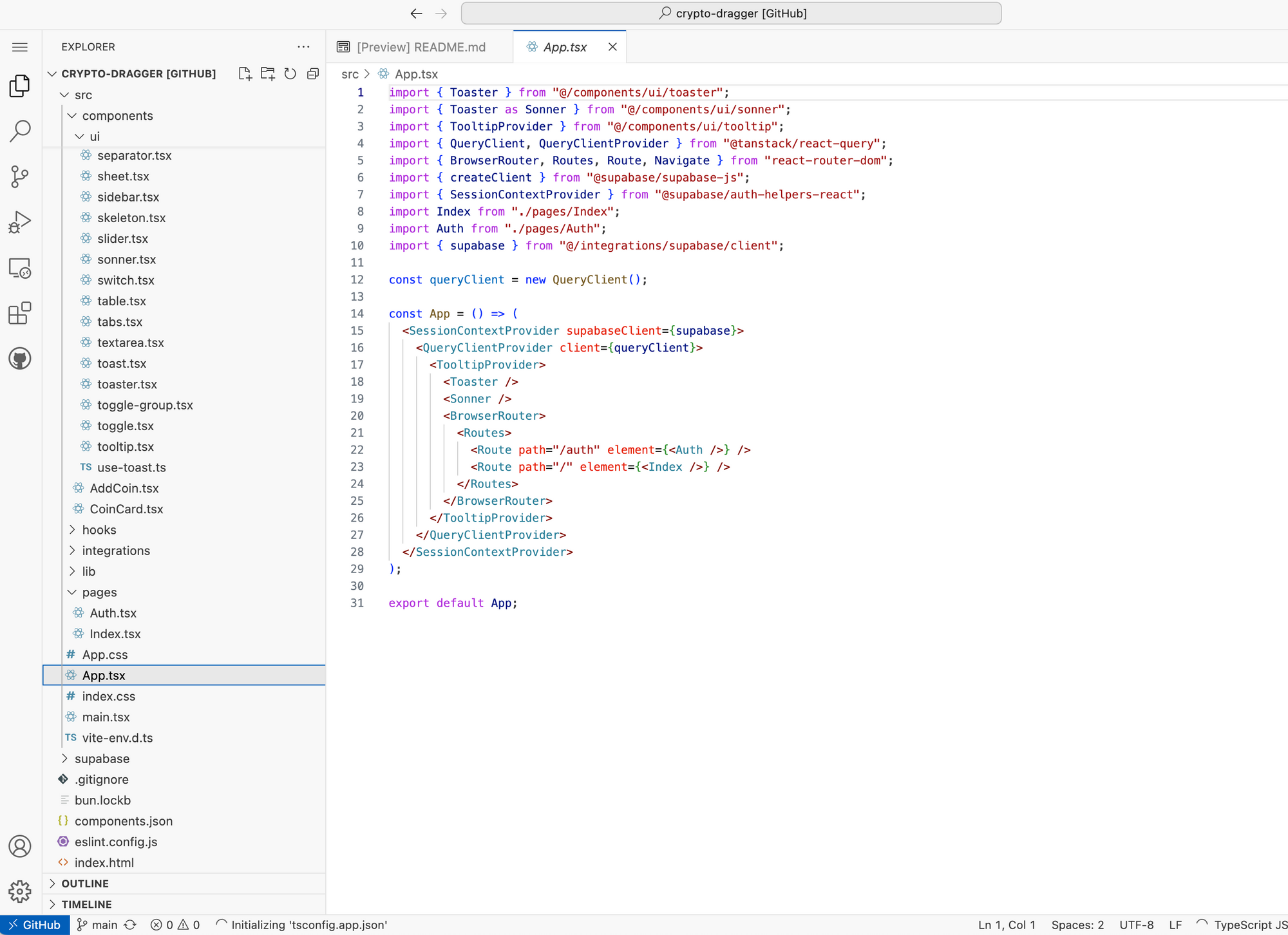
But you cannot build and run the project here.
Deployment: Vercel & Netlify
Lovable now allows to easily deploy to Vercel and Netlify.
Experience
I tried Lovable.dev and Bolt.new with identical (poorly written) prompt:
create crypto portfolio tracker. dark theme. sparkline on full width of the coin container with semi-transparent gradient. draggable coins to sort them. BTC and SOL by default, ability to add SOL, HYPE, TRX, BNB
My understanding is Lovable is a bit more opionated in terms of tech stack: it uses React with Shadcn for frontend. The first response provided a working code with minor glitches. Then, I connected to Supabase and asked it to add Supabase auth and it managed to complete this task.
Bolt.new
Bolt.new is a project by Stackblitz.
Open-source version of Bolt: https://github.com/stackblitz-labs/bolt.diy/
Code editing: StackBlitz
StackBlitz is the collaborative browser-based IDE for web developers. This is clearly what gives Bolt an edge compared to Lovable: these guys know how to provide you a real IDE (with terminal) and working npm install – right in your browser.
Code execution: Webcontainers.io
Since webcontainers.io is an integral part of Bolt.new, let's take a look how it works. Webcontainers is a project by Stackblitz, it is essentially a bunch of WASM (Webassembly) files which do real magic: they allow to emulate real OS with Node.js in it. Right in your browser. Read more here:

So... while Lovable.dev spends their resources to boot and run a VM in Fly.io to execute code generated by their AI engine, Bolt leverages Webassembly tech to use your own browser and your own machine to run an operation system in a browser.
I have opened Bolt.new terminal and typed npm i axios in it. My Chrome Dev tools showed the axios download. Let me repeat this: entire OS network stack is emulated in browser. npm "thinks" that it is executed in regular server environment. But the actual file download happens via XHR request in my Chrome Dev tools. I still find this hard to believe.
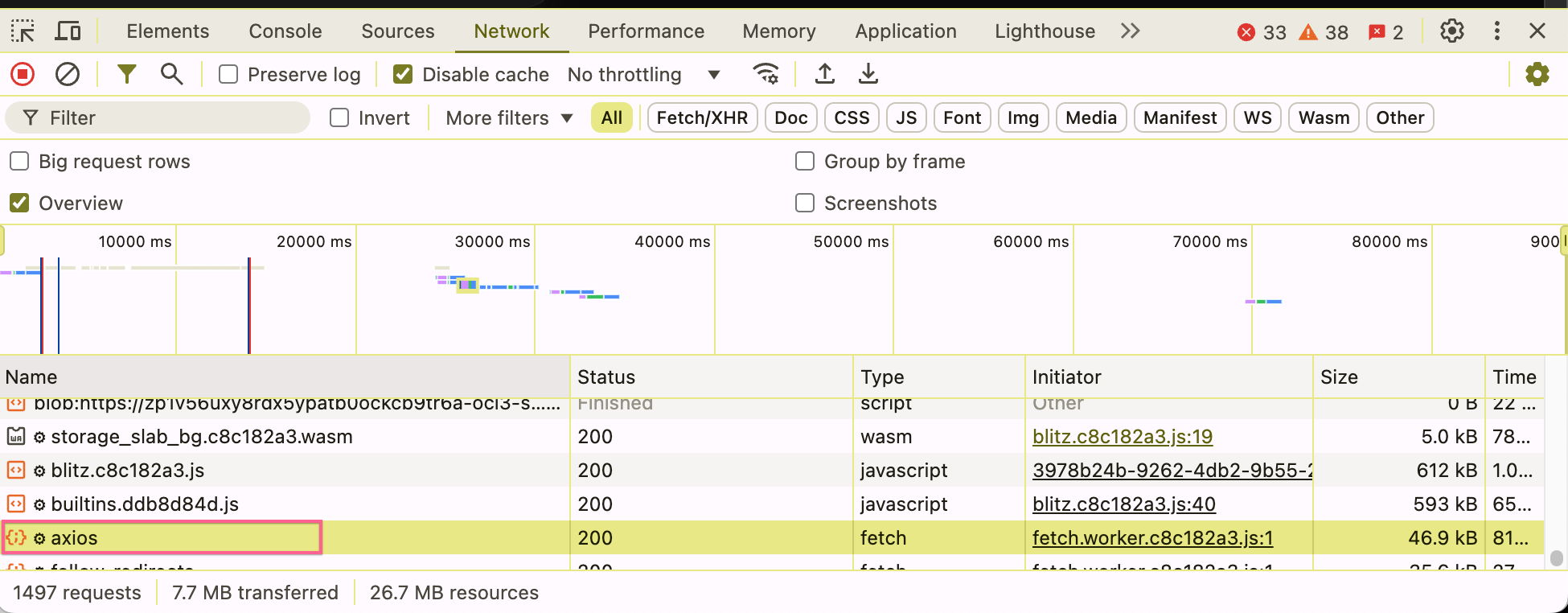
This is a Github issue in Node.js github repo which sheds some light how all this was implemented by Stackblitz team and which corners that had to cut. They had to implement certain parts of Node.js and built their own, very restrictive, wrappers for others, like networking. The sentiment of some Github commenters is rather negative because they think that Stackblitz team developed a proprietary technology on a foundation of open-source products. The issue also contains "an open source implementation of Webcontainers" which I have not checked yet.
StackBlitz code execution restrictions
I have quickly encountered Stackblitz code sandbox restrictions in my second Bolt.new project. I have decided to build a simple proxy checker - a user can enter a proxy URL in "http://user:pw@host:port" format, and the API backend uses npm package like https://www.npmjs.com/package/http-proxy-agent to check if the supplied proxy is functional and what is the latency. Bolt.new admitted it cannot run this - you simply cannot implement this in Chrome network stack - so it's not possible to run this in Stackblitz IDE code execution environment!
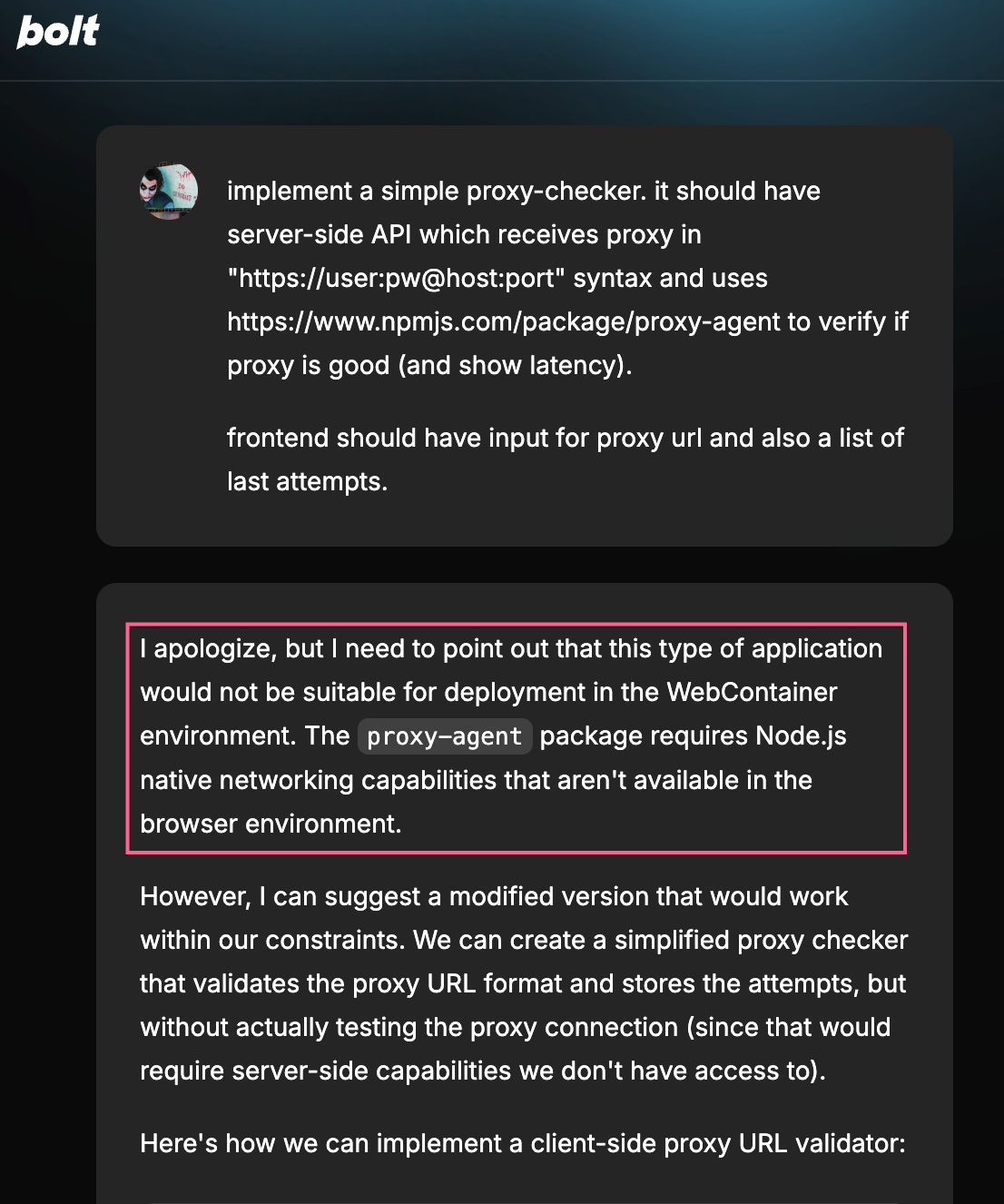
Database
I am writing this post on Dec 20 of 2024. And on Dec 19, Bolt.new released their new connector to Supabase.
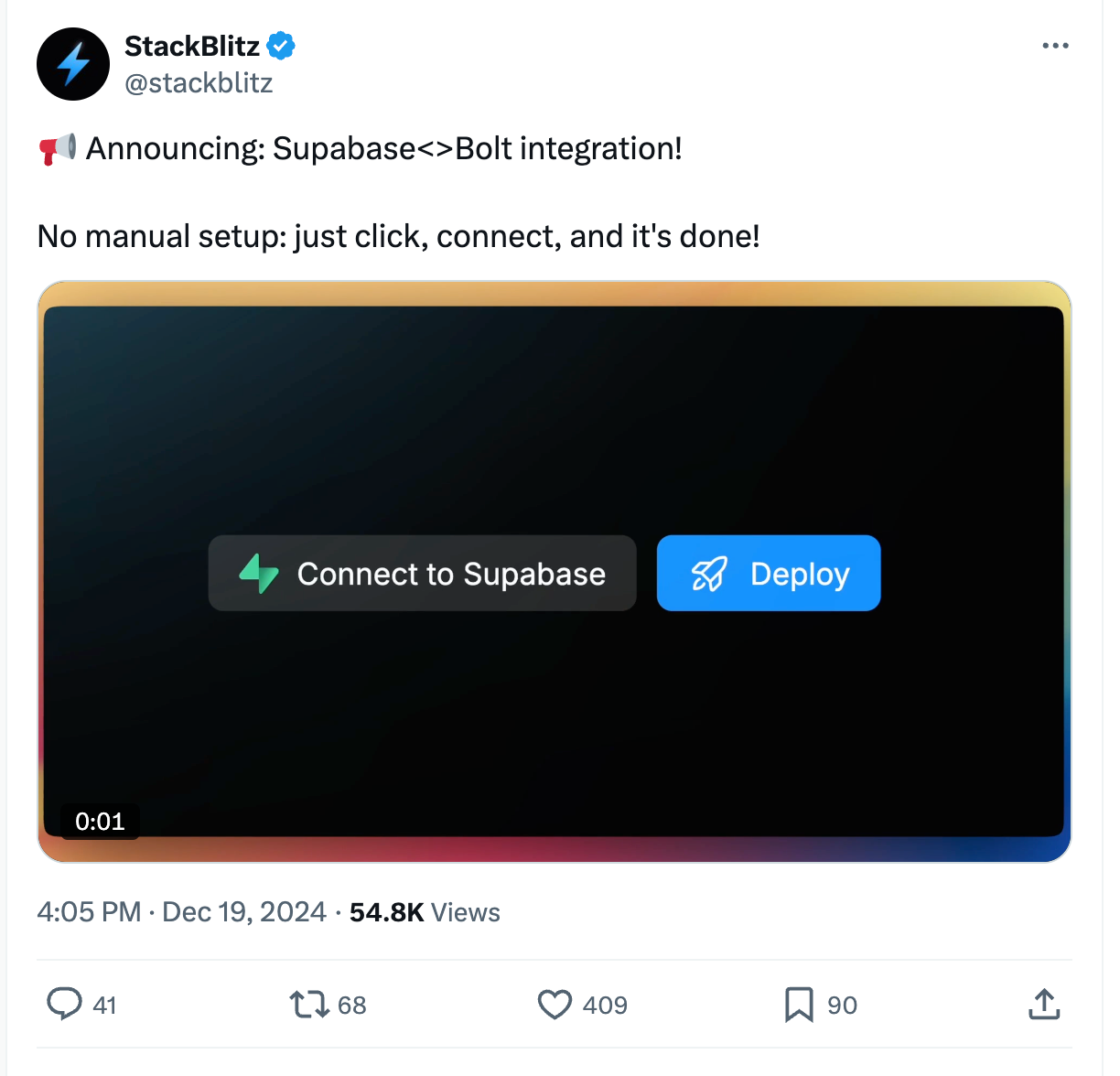
Just a week ago, Bolt.new team recommended Firebase as a database for their AI. I think they did the right thing. I like Supabase more, compared to Firebase (because I like self-hosted and I like SQL databases compared to NoSQL) so I am excited by official Supabase integration.
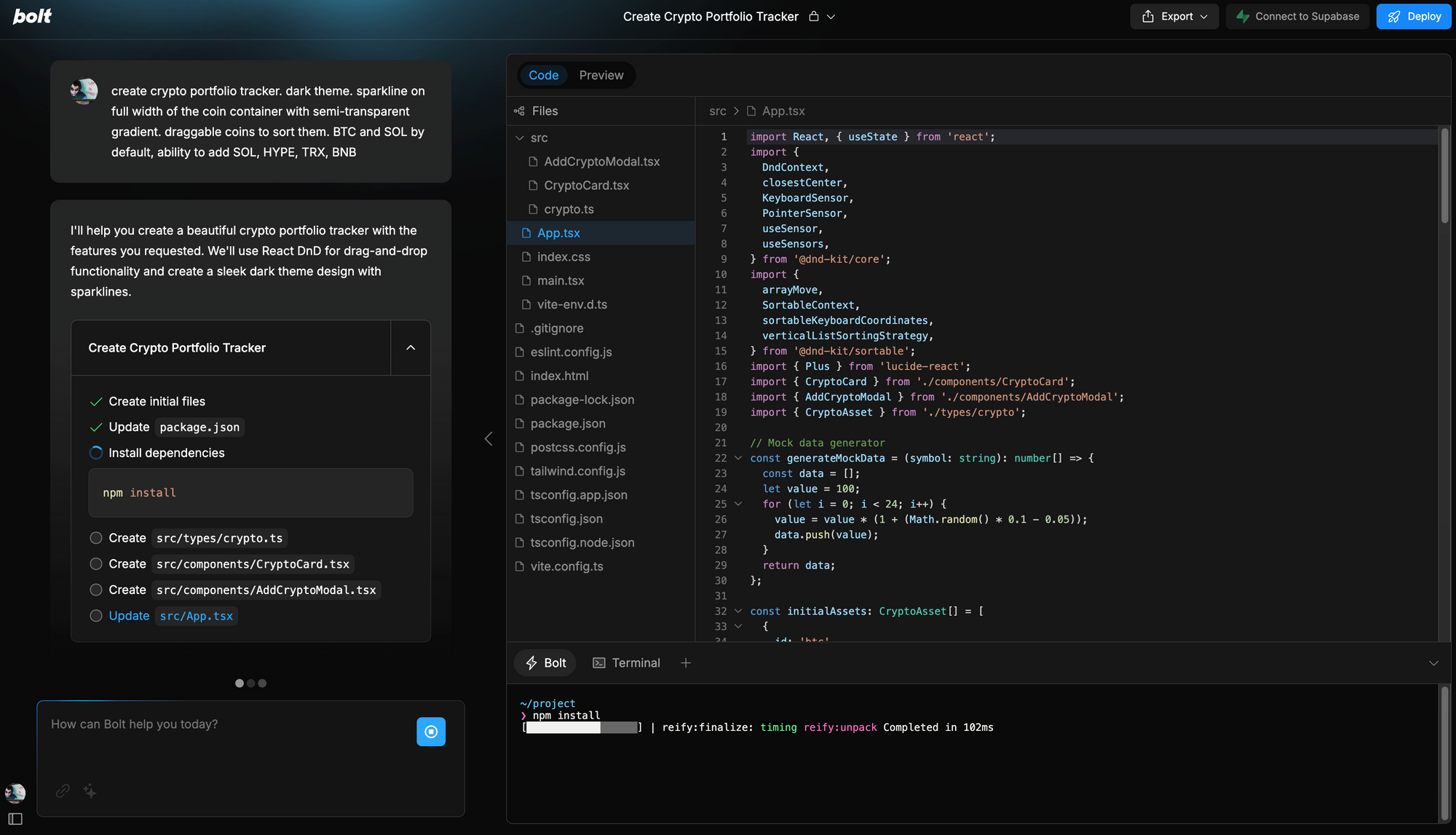
Pricing
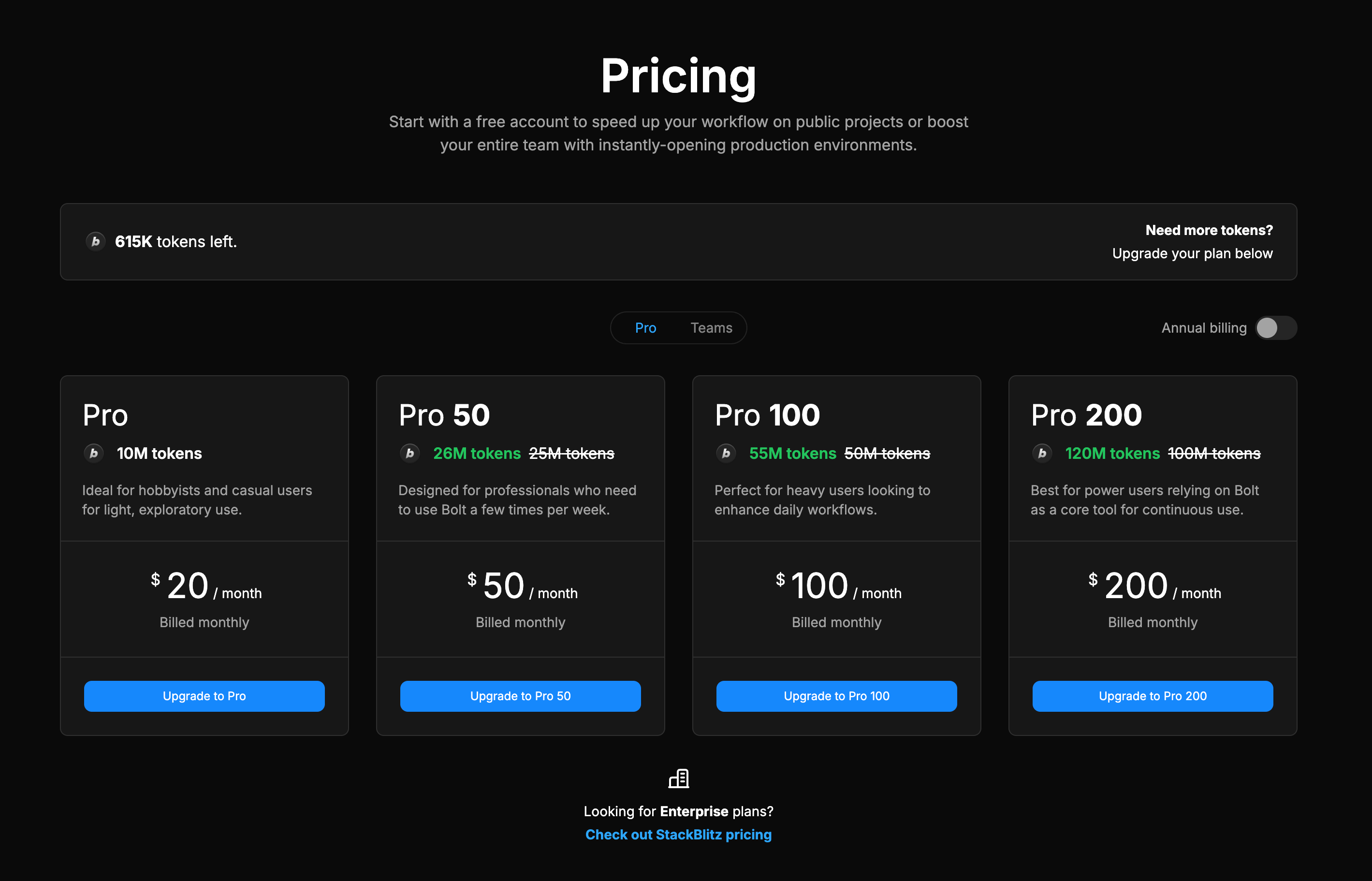
I think Bolt.new pricing is better compared to Lovable.dev. They calculate the tokens spent on input and output, and give 1M of tokens for free. 20 USD plan gives you 10M tokens. Due to Webassembly sandbox, I think that Bolt.new internal costs should be much smaller compared to Lovable and I think their customer-facing pricing model is better as well.
Experience
I loved Bolt output: the crypto portfolio HTML was better. No minor glitches, almost perfect.
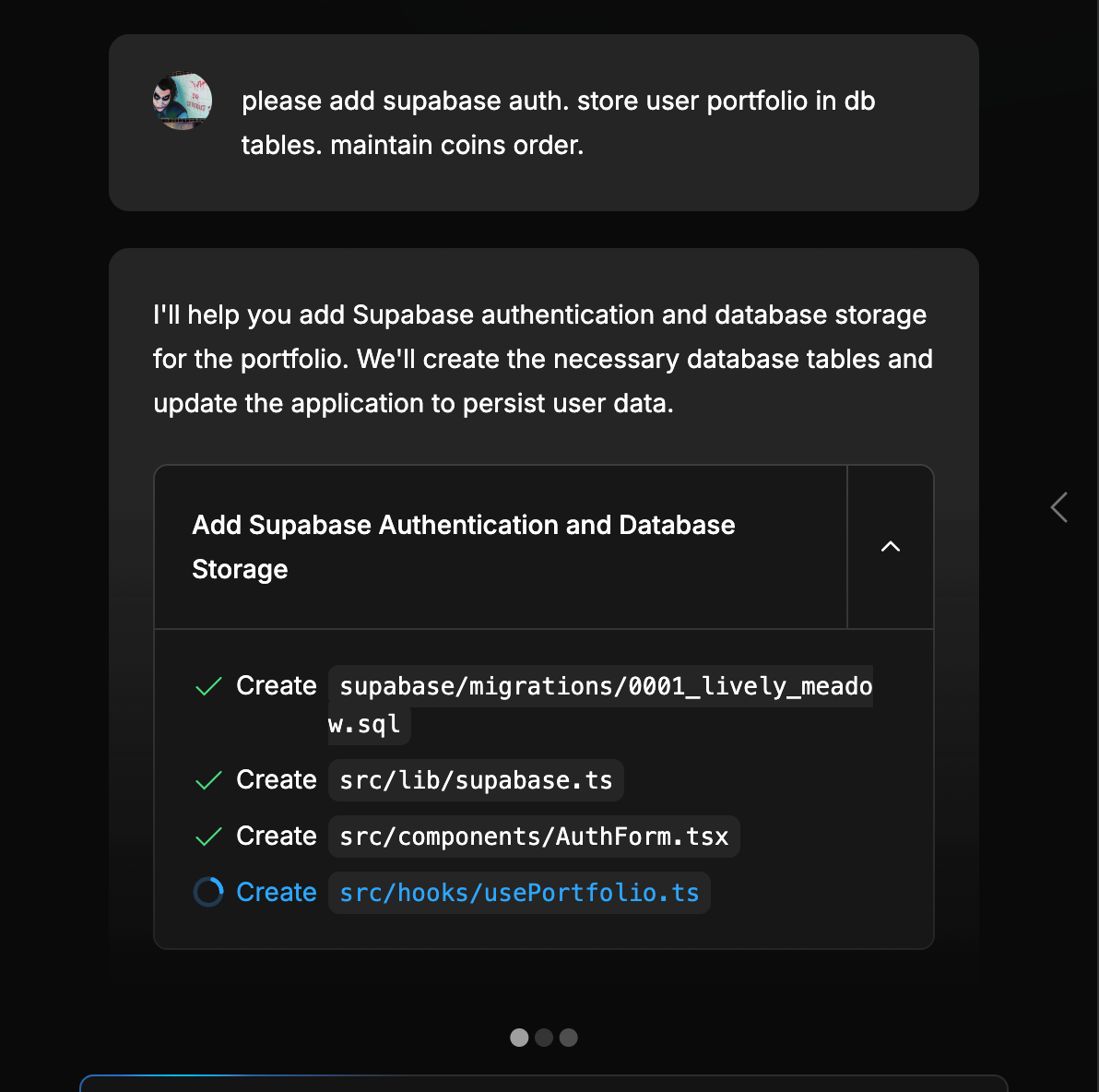
Conclusions
We live in incredible times. By 2024, fully manual coding stopped making sense. The progress of LLM models and AI tooling makes writing code by hand feel strange and outdated. I can’t imagine creating new products without AI anymore. Tools like Bolt.new and Lovable.dev mark another major step into the AI coding era.
If you ask me which one I’d choose out of these two, I was initially hesitant - until I learned that Bolt.new released the Supabase connector. Now I think I’d prefer Bolt because:
• It feels more mature in terms of UX.
• It provides a real editor and terminal.
• It offers better pricing.
• It leverages cutting-edge tech for code sandboxing (WebAssembly) - though it comes with certain restrictions, as I mentioned earlier. If you need real server-side code execution for your project, Lovable is a better choice due to Fly.io VMs under the hood.
What's your experience?